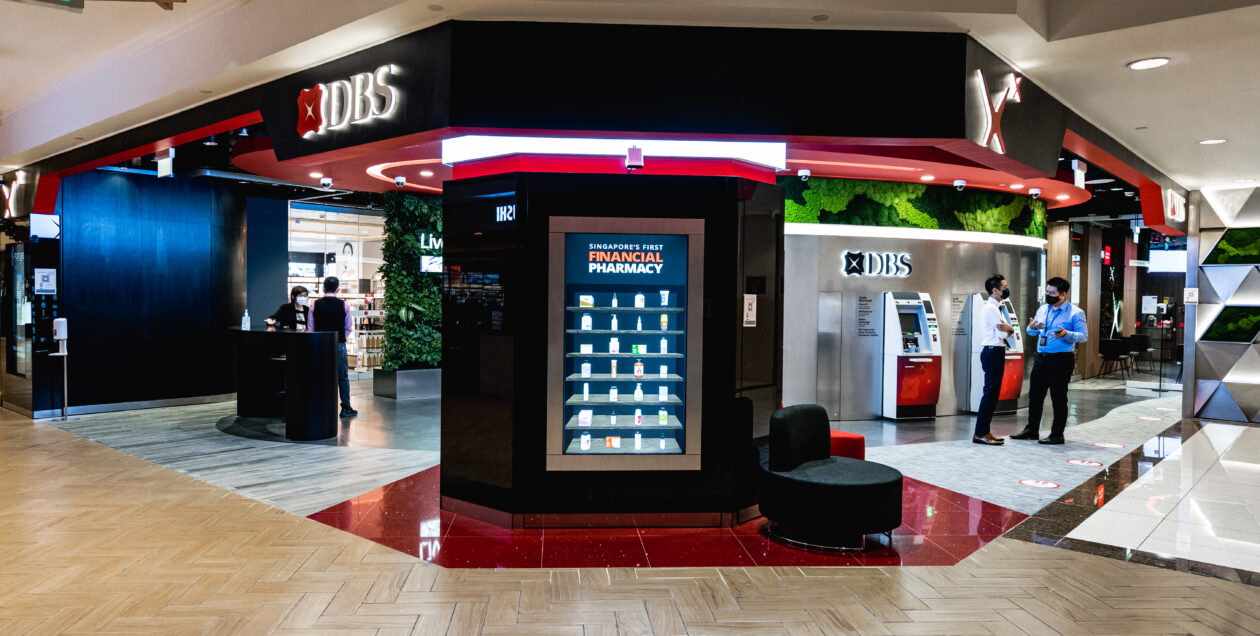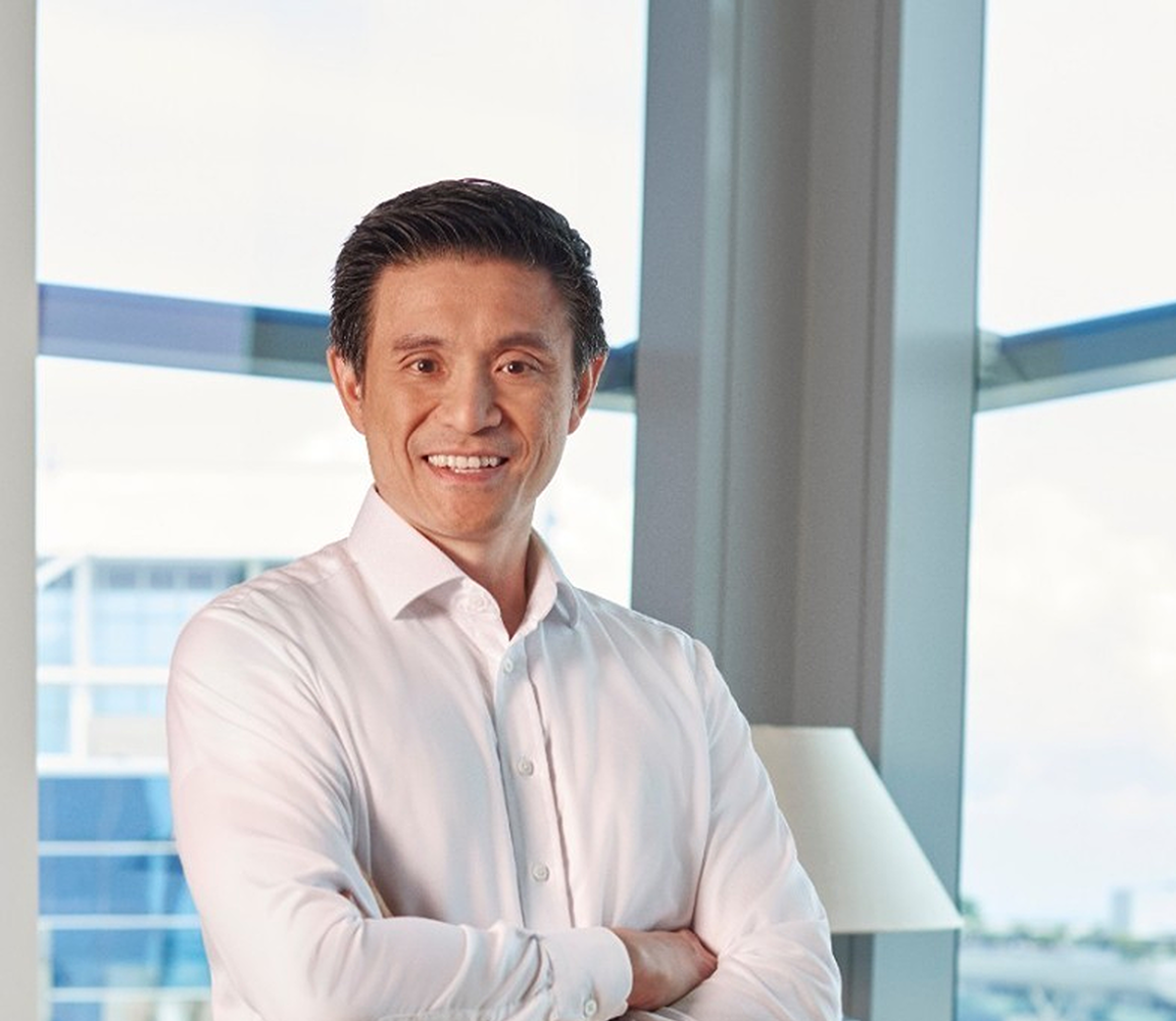In a Q&A, Han Kwee Juan, group head of strategy and planning at DBS, told Forkast what improvements are needed in automated market making and the benefits of blockchain and smart contracts for a financial infrastructure. The Q&A has been edited for language and brevity.
Pradipta Mukherjee: What are DBS’s plans in DeFi?
Han Kwee Juan: Under Project Guardian, we are hoping to use some of the blockchain technology and concepts in DeFi and apply that to the trading of traditional securities, government securities in this particular case, to see if we can reimagine the way all the counterparties interact with each other differently through a DeFi concept. So, from that perspective, DBS is working with the Monetary Authority of Singapore (MAS), together with other industry participants, to determine if this is feasible. And then the next step would be, to start engaging a broader set of industry players and just bring in more people into the conversation to educate and to share what we learn from the project.
Mukherjee: What have you learnt so far?
Han: I think it is quite similar to our previous experiences in Project Ubin which resulted in the creation of a joint venture with JP Morgan and Temasek, and creating a blockchain technology company called Partior, which provides a solution based on blockchain for cross-border payments.
We have also been involved with the other project, debuting at the Singapore Fintech Festival this year called Project Orchid, which is tokenized SingDollars in purpose-bound money-based (PBM) vouchers.
I think we are excited that the hypothesis that we have put up for Project Guardian together with MAS is proving that it can be done from a technology standpoint, from a re-imagination of the trading flows standpoint, and as well as clearing and settlement (standpoint). So we are really quite pleased that they actually can be operationalized and a technology is available for us to execute.
And that it is also a world’s first for an institutional permissioned DeFi concept to be tried is something that we’re quite proud of. We are quite excited about taking it to the next level, socializing it with other industry participants and see if it can be broadened out for a broader discussion and adoption.
Mukherjee: What is Project Guardian trying to achieve?
Han: Under today’s trading environment, we all know that the trading of government securities, be it asset swaps or outright purchase, is done on an OTC (over-the-counter) basis. And in that process you will have several intermediaries in the flow, such as custodians for the securities. And then you do have broker (and) dealers involved. And that’s a lot of people.
So one of the things that we were thinking that Project Garden could try to address, is can we look to use DeFi techniques and blockchain technology to reimagine this whole interaction where trading and operational efficiencies could be achieved and even potentially reduce counterparty settlement and credit risk in the process.

Mukherjee: What are the challenges and improvements needed in Defi?
Han: The improvement required is in the automated market making. The issue is with the automated market making capabilities. Today, what is available on open source in the market tends to be quite simple as compared to the kind of trading patterns that you see in the over-the-counter (OTC) markets. So that is one area that requires more work to be done in order to really power the possible transactions that happen in OTC today.
The key mechanism that is needed is the pricing mechanism, which is that automated market making requires some more thinking and work to essentially take care of the different trading patterns that you see in today’s market.
We would also like this to be a permissioned pool. So in a traditional DeFi, your wallet is anonymous, so you don’t really know who you’re trading against. And in an institutional DeFi context, you can’t do that without knowing who are the participants, because the risk of illicit money being moved in that kind of protocol is very high. And so we wanted to eliminate that by creating a trust mechanism for wallets to come in and then you trade.
So that is something that still requires some level of thinking on how it can be done so that the whole market can accept it. I think there is a little bit of work to be done to discuss among the different industry participants.
Again, the current systems are not blockchain native. You need to integrate the current systems into a blockchain we are trading, which involves generation of smart contracts. That whole journey around how you make sure that it’s all connected and integrated with information flowing back from the pool when transaction happens, needs again a conversation to be had and make sure that it is understood and well thought through to take care of the various requirements of the trading parties and the internal policies. So those are the areas that still require further conversation and discussions.
Mukherjee: Where do you see blockchain adoption headed?
Han: I think on the technology itself, just judging by the level of conversations that are happening among the regulators, as well as the various sandboxes and projects that the regulators are creating and getting industry participation, I do think that all of these will lead to blockchain technology being used for the purpose of creating efficiency, because we have always held a view that blockchain as a technology is useful for creating automation and operational efficiency.

If you lay a smart contract on top of it, you’re essentially adding on the various conditions and checks that you would have gone through in a transaction but programming it into a smart contract for these conditions or processes to take place before the transactions get settled and get done.
So a combination of the immutability of records on blockchain, the distributed nature that allows all participants to see what is relevant to them, together with the programmability of smart contract for you to add on and automate some of these workflows and checks, will definitely result in improving operational efficiency, which banks and everybody else will look at as an opportunity for them to really make their transactions a lot more secure, faster, and that is always a good thing. So, the more we get comfortable with the technology, the higher the adoption will go.
Mukherjee: Do you think smart contracts will rule the future?
Han: I don’t think so. I mean, ruling the world just simply means that the rest of us would simply be made redundant. Smart contracts are programmed based on the knowledge that we all have on what is needed for transactions to be done.
All of us know that the world doesn’t really behave in a linear fashion and in cases where things happen that require an intervention or a solution, it’s different from how things normally work due to a risk event or due to something changing. The smart contract that has been created cannot take care of the situation. Right? So you still need intervention from, you know, the expertise of various individuals to solve it. Or you could solve it and just create new conditions and put it in a smart contract. So a smart contract is smart because of the experts in the field, in knowing what needs to be put in there.
But you can’t put all the cases into the smart contract. You’ve got to see what the situations are in depth and you change as you go. So smart contracts will help with efficiency, but is it going to rule the world? Unlikely.
It’s the same thing as asking if the internet is ruling the world. Probably not. That’s driving a lot of conversation and creating a lot of connectivity, but it’s a useful infrastructure. And we see blockchain and smart contracts as a useful infrastructure to help with the efficiencies that could be gained.
Mukherjee: MAS has warned against retail crypto trading. Is that going to affect retail participation in DeFi?
Han: I think retail participation in DeFi will not be an immediate step that you will see in the marketplace. What is an immediate step in the marketplace is the fact that we’ve got to get consumers educated about the assets that they’re investing in and the volatility of the assets in terms of prices.
We also need to ensure that they understand that due to the volatility, you can face extreme losses. Because if you can’t afford the volatility that comes with it, then it’s best not to get into it. And that has always been our advice on any investment instrument to our customers.





